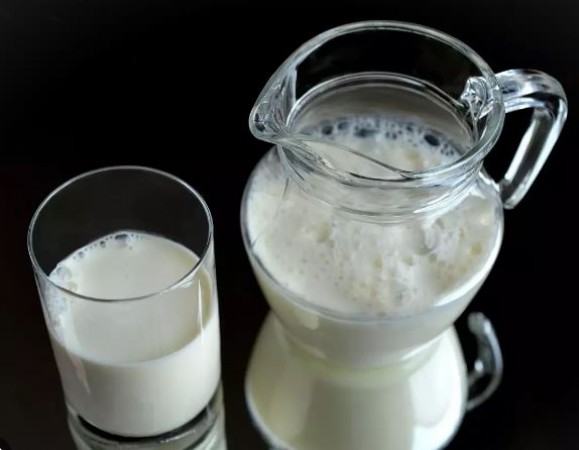
In today's world, milk is a widely consumed beverage, celebrated for its nutritional value and versatility. From childhood, we are told that milk is essential for strong bones and overall health. While milk does offer several health benefits, it's important to acknowledge that it may not be the best choice for everyone. In this article, we'll explore the potential side effects of drinking milk and who might be most affected by them.
Lactose intolerance is a condition where the body lacks sufficient lactase, an enzyme needed to digest lactose, the sugar found in milk. When individuals with lactose intolerance consume milk or dairy products, they can experience a range of uncomfortable symptoms. These symptoms include bloating, diarrhea, and abdominal pain, which can be bothersome and inconvenient.
Lactose intolerance is a common condition, and it's estimated that about 65% of the global population is lactose intolerant to some extent. For many people, this is a lifelong condition, and it can make consuming dairy products like milk a challenging endeavor.
Milk allergy, in contrast to lactose intolerance, is an immune system response to the proteins found in milk. This allergic reaction can lead to a wide range of symptoms, ranging from mild to severe. Symptoms may include hives, wheezing, and, in severe cases, anaphylaxis, which is a life-threatening allergic reaction.
Milk allergy is more common in children, with many outgrowing it as they get older. However, some individuals continue to have milk allergies into adulthood. For those who do have milk allergies, avoiding milk and dairy products is crucial to prevent allergic reactions.
There is an ongoing debate regarding the connection between dairy consumption and acne. Some studies suggest that milk's hormones and growth factors may exacerbate acne, particularly in teenagers. The specific mechanism behind this link is not yet fully understood, but it's an area of active research.
It's essential to note that the effect of milk on skin can vary from person to person. While some individuals may experience acne flare-ups when they consume dairy products, others may not notice any significant changes in their skin. This suggests that there may be individual factors at play.
Milk, particularly whole milk, can be relatively high in calories and saturated fat. Consuming milk excessively, especially in combination with a high-calorie diet, can contribute to weight gain and adversely affect heart health.
To mitigate these concerns, individuals who are mindful of their calorie and fat intake can opt for low-fat or skim milk varieties. These options contain fewer calories and less saturated fat, making them a more heart-healthy choice.
Milk is often promoted as an excellent source of calcium, a mineral vital for strong bones. However, some studies suggest that excessive milk consumption may not necessarily lead to better bone health and could even increase the risk of osteoporosis in certain individuals.
Balanced nutrition is essential for maintaining strong bones. While calcium is crucial, it should be part of a broader diet that includes a variety of calcium-rich foods, such as leafy greens and fortified products. Regular physical activity also plays a significant role in maintaining bone health.
Milk from cows can contain hormones like estrogen and progesterone, which are used in some dairy farming practices. There are concerns about the potential effects of these hormones on the health of individuals who consume milk.
Antibiotics are sometimes used in dairy farming to treat or prevent diseases in cows. There are concerns about antibiotic residues making their way into milk and the potential impact on antibiotic resistance in humans. This issue is part of a broader conversation about the use of antibiotics in agriculture. In conclusion, while milk offers numerous health benefits, it's essential to recognize that it may not be suitable for everyone. Lactose intolerance and milk allergies can lead to unpleasant symptoms, and there are debates about its effects on acne, weight management, and bone health. To make an informed choice, individuals should consider their unique health circumstances and dietary preferences. It's also important to keep in mind that individual responses to milk can vary, and what works for one person may not work for another. As with any dietary decision, it's wise to consult with a healthcare professional to determine what's best for your specific needs and health goals.
Kargil is famous not only for war but also for these beautiful locations
This lake is famous by the name of Madhuri Dixit! I will keep looking at the beauty